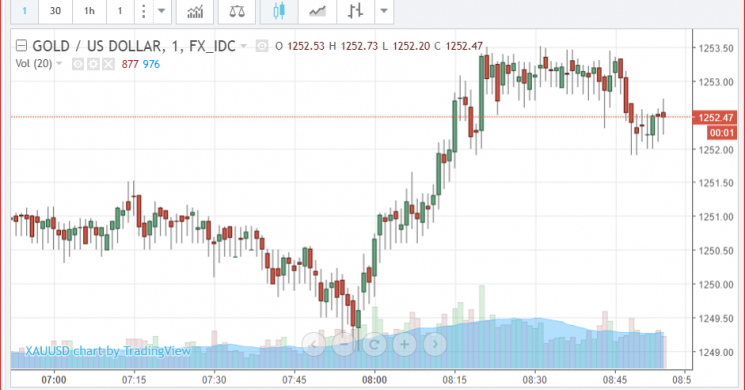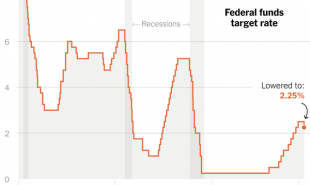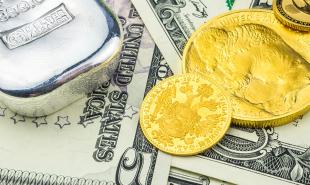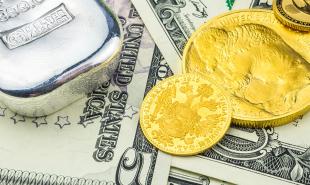
Fed meeting prep
The two-day Federal Reserve meeting begins in Washington today, and while investors expect rates to be kept unchanged when the announcement is made tomorrow, any changes to the the bank's outlook on growth, or hints about balance-sheet normalization have the potential to move markets. Former Federal Reserve Governor Daniel Tarullo said that weak inflation is likely to weigh on discussions about the pace of future interest-rate hikes.
After multiple hikes and talk of an unwinding of the FEDs balance sheet over the last several months, we are now faced with lower than hoped inflation, stagnant organic economic growth by many measures, and counterintuitively, stock markets making new highs almost daily. Why?
Here's our take.
The 3 main issues hanging over markets ( or bolstering them) are Fed hike/ not hikes, unwinding the Fed's bloated balance sheet, and inflation vs. employment.
1- To Hike or Not to Hike
The Fed needed to raise rates to have some bullets in its gun in case of an exogeneous event that demanded more liquidity. Yellen at one point stated as much. And they did just that. Now, they have room to ease if need be.
The Fed has room to hike as long as stocks continue to remain strong. The ECB is now buying ATH, as the US Fed BTD. But Gold is now also starting to go up on hawk and dove talk. Let's see if that continues.
2- QT is Coming?!
As to QT being enacted, we do not take that seriously. Many others do not as well. When one looks at EU countries now buying global stocks because their appetite for their own bonds is satiated, and the patently obvious collaboration between central banks (i.e. Draghi turns Hawk as the US raises, Draghi turns back to dove last week as does our Fed); connecting those dots leads any sane person to see that EU banks are buying US stocks.
One explanation we would put forward ties together the EU outflows and the continuing levitation of stocks. The ECB is buying US stocks now that they've bought a ton of their own bonds and corporate debt. And frankly, that is smart. Because if inflation ever gets to where they want it, and it will, then stocks will keep pace better with inflation and hedge their own debased EURO than domestic bonds.
This is in fact borne out in the net outflows of EU capital:
The universe of emerging market debt trading at distressed levels (defined as yielding more than 10 percent versus Treasurys) is the slimmest pickings in ten years, according to data compiled by Bloomberg and J.P. Morgan. Diego Ferro, co-chief investment officer at Greylock Capital Management, commented that: “There is too much money coming into emerging markets, so leverage is increasing and investors are piling on certain trades of dubious quality.”
Amidst microscopic yields and dwindling supply as the ECB continues to Hoover up as much as 33% of investment grade corporate and sovereign debt across the eurozone, local investors have poured capital abroad. Data from the ECB show that euro-area investors have been buying at an annualized clip of between €300 billion and €500 billion in foreign long term debt instruments since 2015. ECB executive board member Benoît Cœuré discussed the trend in a speech on July 11:
At their peak around the middle of 2016, net capital outflows – measured here in terms of 12-month moving sums – reached nearly 5% of euro area GDP. Never before in the history of the euro area have capital flows been so high.
Have passport, will travel:
While this chart shows outflows from the EU, and does not substantiate our comment of the EU buying US stocks... this one does
As of May 2015 the SNB owned $1.1BB in Apple alone. its not much of a leap to assume the ECB owns US equities. But that wasn't enough
In the second quarter of 2016, the Swiss National Bank added $7.3 billion to its US equity portfolio, and according to its just filed 13-F, is now long a record $61.8 billion in US stocks, up from $54.5 billion a month ago. In fact, rising from $41.3 billion in total US stock holdings as of December 2015, this means that the Swiss central bank increased its total US holdings by a record 50% in the first half of 2016.
Do you think they've stopped buying?
3- Inflation vs Jobs
This is easy. The Fed will jawbone how close we are to full employment when they want to hike rates. They will wring their hands at not achieving higher inflation when they want to lower them. just watch the Fed notes closer as well as when their ECB puppet Draghi speaks.
But.. But.. But Gold?
Of course Gold is a better hedge than stocks for inflation. But it would take a fraction of the extra money sloshing around out there to buy all the Gold in the world. Not to mention the signal it sends to the public. And don't fret, the central banks of the world are buying gold hand over fist. They just do not advertise it.
interactive live charts HERE
After all the bonds have been bought, all the stocks too, there will be nothing left to buy with that money sloshing around. There will be no way to "sanitize the printing with sovereign bond purchases. There can be no balance sheet unwind without a mainstreet deflationary catastrophe and a wall street inflationary collapse. Kind of the opposite of right now. Thus the Fed must stay the course, until they run out of "good" things to inflate. They will keep titrating the stock market addiction to heroin and cocaine with benadryl and caffeine. Until the markets stop believing. And the little signs that this has begun are in the reaction to Gold on hawkish and dovish statements.
Read more by Soren K.Group







